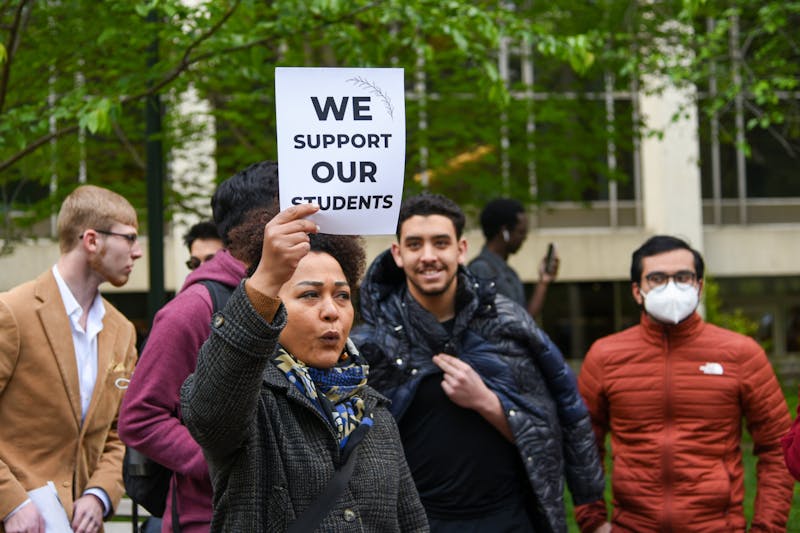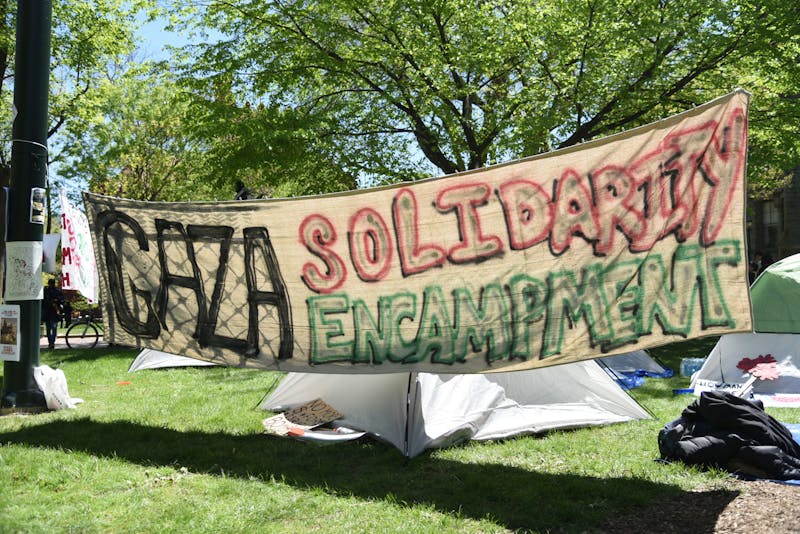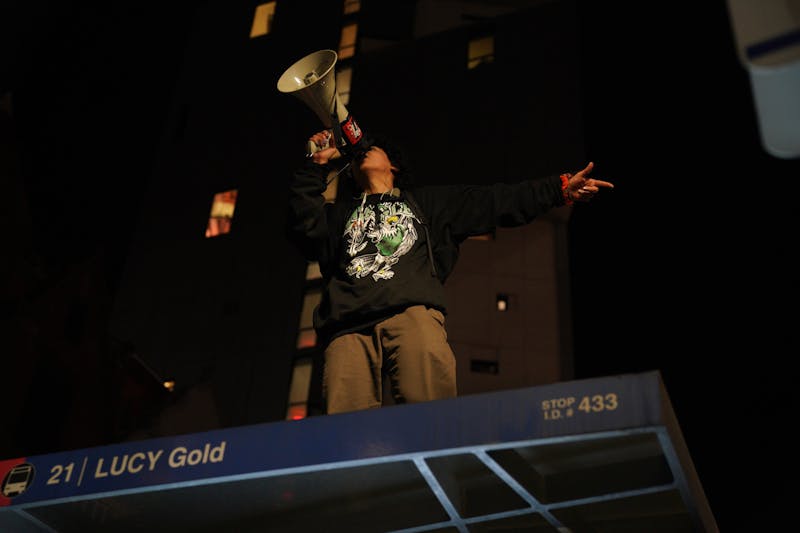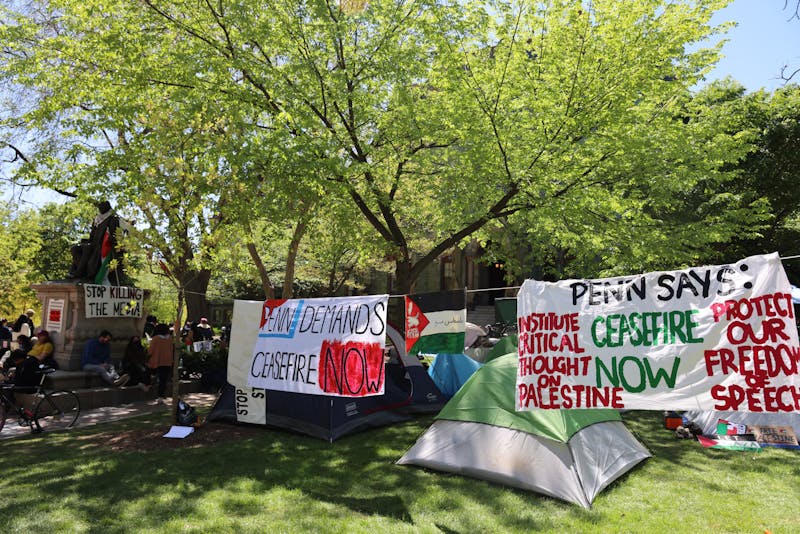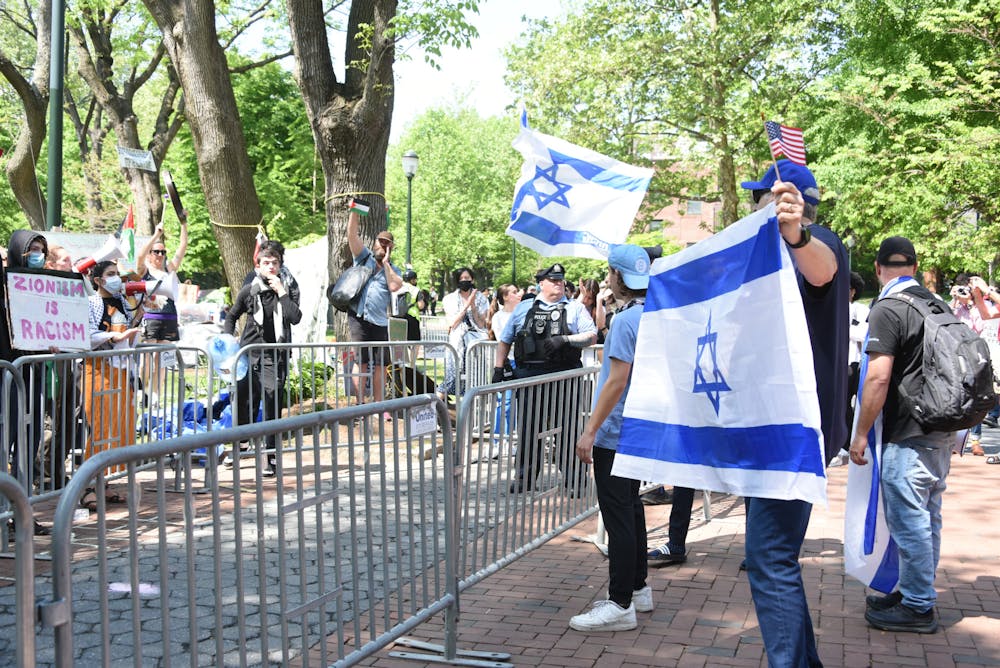
I did not want to publish another piece on the Israel-Hamas war.
Lately, I've been grappling with self doubt, questioning whether I should have voiced my opinions on the issue at all. My earlier columns have yielded no positive outcomes, only estranging me from individuals I once held in high regard. I've found myself clinging to those who still maintain a semblance of civility in our conversations. I wonder if my commentary is productive or even warranted.
So, while I recognize the local implications of geopolitical conflicts, I question whether speaking out is worth compromising my relative sense of security. I realize that this consideration is a mark of my privilege as an unaffected observer, but I've enjoyed the recent peace from not engaging in controversial political discourse.
However, in light of the recent encampment on College Green, I feel compelled to address my concern regarding how readily members of the Penn community sever connections in favor of ideological echo chambers. Many well-intentioned students have adopted rigid, individualistic stances, labeling those who disagree as complicit in genocide and unworthy of engagement. This attitude has far-reaching implications, diverting attention from the victims of war that Penn’s burgeoning activists claim to support.
Unfortunately, almost all of these politically involved actors are at fault for our tragic reality.
First off, I realize that many protestors acknowledge Hamas' role in the initial attacks, yet this recognition far too often falls under public view. Instead, anti-Zionists are infamous in opposition circles for using token Jews as spokespeople, ignoring the vast majority of Jews who don't share their perspectives. Representatives of the encampment and affiliated initiatives, such as the Freedom School for Palestine, fail to acknowledge that one can support a single-state solution while participating in collective efforts for Palestinian liberation. The pitfalls of this approach manifested themselves in a recent Jewish Voice for Peace protest. To recap the event, anti-Zionist Jews had attempted to hold a symbolic Passover Seder as a call against the war in Gaza. However, the protestors’ lack of liturgical knowledge was evident in their display where they struggled to write Hebrew phrases correctly — their handwritten letters sprawled from left to right instead of right to left. Furthermore, the topic of antisemitism only headlines the conversation when protestors clarify that anti-Zionism is distinct from antisemitism. This is a fair case to make, but we must acknowledge Zionism's evolving definitions and how some have weaponized anti-Zionist positions against Jews. Most Jews identify as Zionists, and obviously, the general Jewish Zionist position does not condone Palestinian suffering. As ideological communities continue to remain pitted against each other, the Boycott, Divestment, and Sanctions movement’s demand for a comparison of casualty numbers between Israelis and Palestinians can be insensitive to the individual experiences of Jewish students and their efforts for hostage retrieval. Nonetheless, overlooking the disparity in casualties can also come across as dismissive of Palestinian suffering and individuality.
And in that vein, pro-Israel individuals have failed to consistently call out the consequences of the Israel Defense Forces' actions in the West Bank, Gaza Strip, and East Jerusalem, leading to a perceived devaluation of Palestinian lives. Critics use isolated incidents of bigotry within the protest movements as a pretext to condemn nonviolent resistance movements at large. As a result, the students associated with the anti-occupation coalition are effectively reduced to a single ideology. This line of thinking has led to the misguided association of cultural symbols, like Arabic music and the keffiyeh, with hateful ideologies. This is a harmful and inaccurate conflation that will never ensure an equitable future for all. Likewise, by labeling any aspect of pro-Palestinian activism as Hamas, the pro-Israel party not only ceases to stand on its own alleged principles, but it deflects from the actually deplorable instances of explicit affiliation with terrorism and calls for the destruction of Israel. While it is essential to call out antisemitism, accusing students — some of whom are Jewish themselves — of weaponizing a fundamentalist interpretation of the Quran is an Islamophobic trope that unnecessarily inserts religion into the discourse.
That said, I want to address one of many recent incidents of antisemitic vandalism. The prompt covering of graffiti by an organizer was a positive step, but it is crucial to recognize that antisemitism is being weaponized due to the existence of the encampment. Regardless of the perpetrator, all protesters — both pro-Israel and pro-Palestine, for lack of better distinction — must self reflect and call out the possibility of discrimination within their ranks.
Therefore, we need to recognize the humanity and experiences of all concerned, rather than reducing the conflict to simplistic or divisive rhetoric. I urge the Penn community to move beyond petty squabbles and focus on the substantive issues at hand. Regardless of Interim Penn President Larry Jameson's word choice in emails or debates over biblical versus scientific narratives of indigeneity, we must prioritize the core issue: the Palestinian and Israeli victims of prolonged geopolitical tensions. While I acknowledge the good intentions of passionate commentators, fixating on trivial aspects only serves to distract from the pressing concerns that demand our collective attention.

MRITIKA SENTHIL is a first year studying management and Russian and east European studies from Columbia, S.C. Her email is mritikas@upenn.edu.
The Daily Pennsylvanian is an independent, student-run newspaper. Please consider making a donation to support the coverage that shapes the University. Your generosity ensures a future of strong journalism at Penn.
Donate





